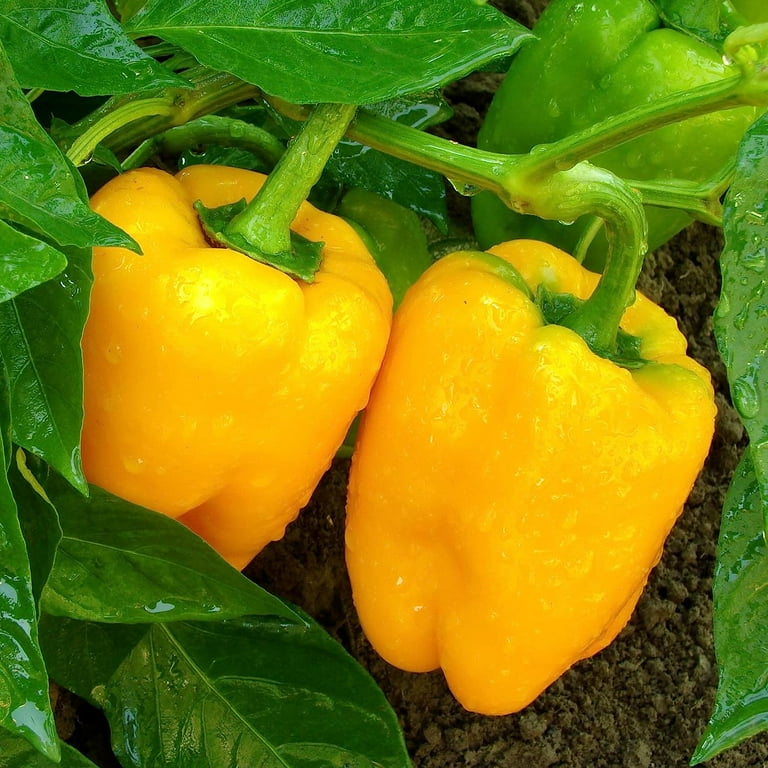The Ultimate Guide to Feeding Peppers: Enhancing Development and Taste Normally
As pepper lovers look for to cultivate durable plants producing tasty fruits, the duty of fertilization ends up being extremely important in accomplishing these goals. By checking out the benefits of all-natural plant foods, unlocking the keys behind pepper plant nutrient needs, and diving into the world of organic plant food alternatives, a world of opportunities emerges for boosting the vitality and taste profile of these cherished plants.
Advantages of Natural Plant Foods
Natural plant foods offer a series of advantages that add to the total health and performance of pepper plants. Unlike synthetic plant foods, natural alternatives offer important nutrients in a form that is conveniently absorbed by the plants, promoting durable growth and advancement. Among the key benefits of all-natural fertilizers is their capability to enhance soil structure and fertility gradually. By improving the soil with natural issue, such as garden compost or manure, all-natural fertilizers enhance its water retention capability and nutrient-holding abilities, developing a much more congenial environment for pepper plants to flourish in.
Moreover, all-natural fertilizers support a varied and active soil microbiome, fostering helpful microbial task that assists in nutrient recycling and uptake by the plants. This microbial task can assist subdue dangerous virus and illness, lowering the demand for chemical treatments. Furthermore, all-natural fertilizers advertise long-lasting soil health and wellness by preserving a balanced community underground, which consequently supports the general health and resilience of pepper plants above ground.
Understanding Pepper Plant Nutrient Demands
Having established the benefits of organic plant foods in boosting soil wellness and promoting microbial task, the focus currently shifts to understanding the particular nutrient requirements important for optimal growth and taste in pepper plants.

Comprehending the details nutrient requirements of pepper plants is essential for attaining abundant harvests with excellent taste. By providing the ideal balance of nutrients via organic plant foods or soil amendments, farmers can make sure healthy, vigorous plants that generate tasty peppers throughout the growing season.
Organic Plant Food Options for Peppers
In boosting the growth and flavor of pepper plants, picking the proper organic plant foods is an essential consideration. Organic plant foods offer a all-natural and sustainable way to nurture pepper plants without introducing damaging chemicals to the dirt and environment. One prominent alternative is garden compost, which enriches the soil with necessary nutrients and improves its structure, promoting healthy and balanced origin development and overall plant growth. Furthermore, garden compost aids keep wetness in the dirt, reducing water tension on pepper plants throughout heat.
An additional effective organic plant food for peppers is aged manure. Rich in potassium, phosphorus, and nitrogen, aged manure provides a balanced nutrient mix that sustains strenuous development and bountiful fruit manufacturing (best fertilizers for peppers). It is necessary to utilize well-aged manure to avoid burning the plants with excess ammonia
Fish emulsion is a fast-acting natural plant food that provides pepper plants with a quick boost of nutrients. Stemmed from click this fish waste, this plant food is high in nitrogen, making it especially helpful during the early phases of pepper plant development. Fish solution is simple to apply and is readily soaked up by the plants, advertising healthy and balanced foliage and solid origin growth.
When picking a natural plant food for peppers, think about the details nutrient requirements of your plants and select options that line up with your gardening methods and worths.
Finest Practices for Fertilizing Pepper Plant Kingdoms
Considering the relevance of selecting ideal organic plant foods for pepper plants, executing ideal practices for fertilizing is vital to make certain ideal development and taste growth. Among the key ideal practices for feeding pepper plants is to conduct a dirt test before using any fertilizers. This examination will assist establish the particular nutrient demands of the soil and guide you in picking the right type and quantity of plant food. It is likewise vital to fertilize pepper plants at the ideal time, usually prior to planting and during key growth phases such as blooming and fruit advancement.
Additionally, including natural matter into the dirt with compost or mulching can aid boost soil structure, water retention, and vitamins and mineral accessibility, promoting much healthier pepper plants with improved flavor accounts. By adhering to these best techniques, you can properly nurture your pepper plants and accomplish abundant harvests with exceptional taste and quality.
Troubleshooting Common Fertilizing Issues

pH discrepancy is one more problem that can impact nutrient uptake in pepper plants. Developing a routine fertilizing routine and complying with suggested application prices can aid prevent this issue and make sure healthy and balanced pepper plants throughout the expanding period.
Conclusion
Finally, using natural plant foods can considerably boost the development and taste of pepper plants. By understanding the nutrient requirements of pepper plants and choosing organic plant food choices, gardeners can efficiently promote energetic and healthy development. Adhering to finest practices for fertilizing pepper plants and repairing typical fertilization issues can aid make certain effective cultivation of peppers. On the whole, correct fertilization techniques are essential for making the most of the yield and find out here top quality of pepper crops.
By checking out the advantages of all-natural plant foods, opening the keys behind pepper plant nutrient needs, and diving into the realm of natural fertilizer choices, a globe of possibilities arises for boosting the vitality and taste account of these beloved plants.Fish emulsion is a fast-acting natural plant food that supplies pepper plants with a fast boost of nutrients. It is likewise vital to fertilize pepper plants at the ideal time, usually prior to planting and throughout key growth phases such as blooming and fruit development.
By recognizing the nutrient needs of pepper plants and picking organic plant food options, gardeners can successfully promote energetic and healthy and balanced growth. Complying with ideal practices for fertilizing pepper plants and repairing usual fertilization issues can assist make sure effective cultivation of peppers.